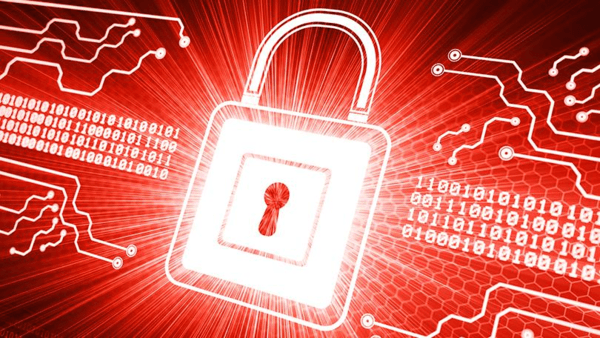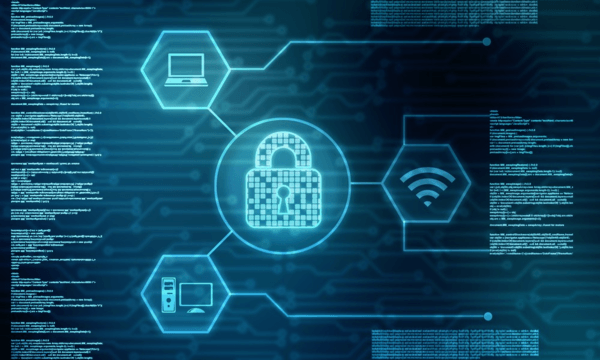
Top 5 AI Development Tools in 2019
November 5, 2019
The Future of Gaming Is Not a Box. It’s a Data Center
November 12, 2019According to experts, the biggest security problem is the use of weak dictionary passwords. Users, using weak passwords, rely on the speed and ease of entering them, and not security. A short password, consisting only of letters, without the use of numbers or special characters can be picked up in a few minutes. https://www.youtube.com/embed/-ni_PWxrsNoThe efficiency of the brute force attack by the official account names – user, admin, and passwords like password, pass123, qwerty, 1111111, is about 53% according to statistics.
Having gained access to the enterprise server, an attacker can:
- Find out information of a commercial nature;
- Copy customer databases;
- Intercept access to the client-bank system;
- Install a crypto locker for further extortion of funds;
- To infect an enterprise network with a cryptocurrency miner;
- Set a keylogger for additional secret information removal.
The problem of gaining unauthorized access to services takes extremely diverse forms and is based mainly on errors or undocumented features of the software itself that provides such services.
But the problem of failure (disruption of normal functioning) of services is quite relevant in the modern computer world. The class of such attacks was called the denial of service (DoS) attack. The denial of service attack can be implemented on a whole range of levels: physical, channel, network, session.
What Is Server Security?

Protection and surveillance is the responsibility of the system administrator. This should protect the server from attacks in various ways. For this, the security service is periodically updated, which is responsible for searching for vulnerable areas.
Also, exclusively secure protocols are used for the operation. If you are interested in working as an administrator, you can view a list of the proposed vacancies by specialty: administrator remotely.
The process of organizing the full functioning of the server, and its security, the concept of security includes such components:
- Information Security
Ensuring information security implies the protection of stored information on the server using software services. All material that is on the server is protected. This category includes information that is edited and then laid out or arrives at a specific server. This should include information that can be processed, received or issued to the server
- Technical Security
This type of security is determined by the physical functioning of the VT and a set of additional equipment. Unfortunately, technical safety is currently in a more deplorable state than informational, but more attention should be paid to this component. It is essential to reflect on technical protection at the preparatory stage in the project development process. Choose equipment with optimal protection and reliability parameters, pay attention to compliance with thermal conditions, prepare a backup system in case the main complex fails.
- Organizational security
This component is responsible for ensuring the operability of the server station and the system as a whole. Administrative and economical methods are used for this. In order to ensure the safety of information, it is necessary to develop lists of people who will have access to all data and technology, a regime for changing passwords and their purpose, and, of course, the parameters of confidentiality of information are observed.
Expert Tips on How to Increase Your Server’s Security
Hacks are performed continuously by automated scripts that were explicitly written to scour the Internet and try to hack into sites that have known software holes. If you don’t use expert assistance on this issue, then you have to learn the following tips:
- Improve Your Passwords
It is critically important to use complex passwords for your server and website administration unit, but it is equally important to require your users to use complex passwords for their accounts.
Despite the fact that users do not like this, compulsory password requirements, such as a minimum length of at least eight characters, including uppercase characters or numbers in the password will help them ultimately save their information.
Passwords should always be stored in encrypted form, best of all, using a one-way hashing algorithm, such as SHA. When using this method to authorize users, you compare the encrypted values.
- Data & Files Management
Allowing users to upload files to your website can be a security risk, even if it’s just a matter of changing your avatar. The danger is that any downloaded file, no matter how harmless it may look, may contain a script that, when executed on your server, allows access to your site.
If you have a file upload form on your site, then you need to be suspicious of all uploaded files. If you allow users to upload images, then when determining the type of data, you cannot rely on the extension or mime type, since they can easily be tampered with.
Even opening a file and reading its title or using image size checking functions are not a 100% guarantee of security. Most image formats allow you to store comments, which can also contain PHP code that can be executed on the server.
- Use SSL to Protect Your Server
SSL is a protocol used to ensure security when transferring data over the Internet. It is a good idea to use a security certificate every time you transfer personal information between a client and a web server or database.
Attackers can listen to the communication channel and, if it is not safe, intercept the transmitted information and use it to gain access to user accounts and personal information.
- Protect Your XSS
Cross-site scripting is when an attacker tries to submit JavaScript or some other code to a web form to execute malicious code on your website. When creating a form, always check the data that users come to you and encode or mask any special characters.
- VPN as an additional way to secure the server
A VPN, or virtual private network, provides support for secure connections between remote computers as if they were on a local network.
Between private and public networks, it is always recommended to choose the first. But keep in mind: since other users in the data center have access to the same network, additional measures must be taken to ensure secure communication between the servers.
A VPN is essentially a way to build a private network that only your servers can see. Server interactions will be completely confidential and secure. Other applications can be configured to transfer traffic through the virtual VPN interface. Thus, customers will be able to access only those services that are set to support connections from the Internet.
The security tips described in this article are just some of the primary enhancements you can implement to enhance the security of your server. It should be noted that the sooner you perform a particular security tool, the more productive it will be. Server security is a serious question, and you cannot ignore it if you want to avoid hacks.
